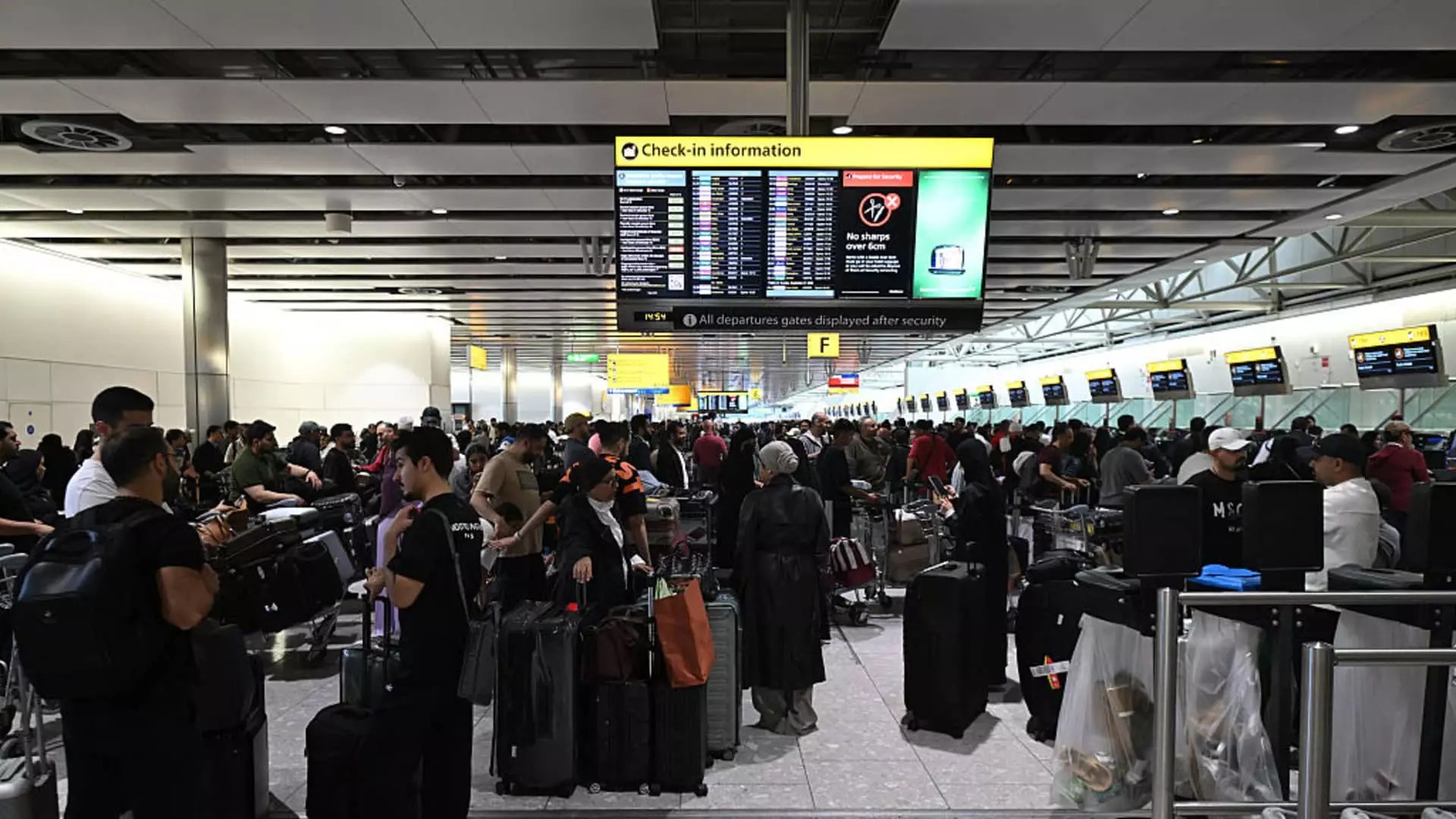In recent days, the aviation sector has been starkly reminded of its precarious reliance on digital systems. A cyberattack targeting Collins Aerospace, a major provider of check-in and boarding technology, has exposed the fragile backbone of our global transportation networks. While this incident initially appeared as a localized disruption, its ripple effects threaten to undermine confidence in the resilience of our digital infrastructure. As a society, we must confront the uncomfortable truth: our interconnected systems, designed for efficiency and convenience, are more vulnerable than ever before. This vulnerability is not merely an inconvenience—it is a stark warning of the chaotic chaos that could ensue if cyber threats continue to go unchecked.
The attack’s impact on major airports such as Heathrow, Brussels, and Berlin exemplifies how a single breach can cascade into widespread logistical nightmares. Flight cancellations, delays, and frustrated travelers illustrate the human cost of cybersecurity complacency. Airlines were forced to revert to manual check-ins, placing additional strain on personnel and passengers alike. The trickle-down effect of these disruptions raises fundamental questions about whether our reliance on digital systems has outpaced our capacity to defend them. Surely, this should serve as a clarion call for urgent reform—yet uncertainty remains about whether sufficient measures are being taken to safeguard essential infrastructure.
The Illusion of Control and the Myth of Cyber Resilience
At the heart of this crisis lies a grave misconception: that technological systems, especially those entrusted with safety and security, are invulnerable. Both industry leaders and governments have long underestimated the sophistication and persistence of cybercriminals. The attack on Collins Aerospace, a key component of the airline check-in process, reveals a deeper failure to anticipate how interconnected supply chains are exploited by malicious actors. It is simplistic to dismiss these events as isolated incidents; instead, they stem from systemic vulnerabilities rooted in underfunded cybersecurity defenses and fragmented communication channels.
The fact that such a disruption can trigger delays across borders underscores the dangerous idea that digital systems are infallible. In reality, they are highly susceptible to attack, especially when third-party vendors are involved. This single point of failure—collapsing under a cyberattack—highlights the urgency of re-evaluating our dependence on shared platforms. Moreover, it underscores the need for a fundamental shift in how we perceive cybersecurity—not as an afterthought, but as a core component of operational integrity. Until this shift occurs, airlines and airports will remain hostage to weak links in their digital supply chains.
The Societal Costs of Cybersecurity Neglect
The economic and social fallout from such cyberattacks extends beyond the immediate inconveniences. Flight cancellations ripple through supply chains, affect tourism, and erode public trust in the safety of digital infrastructure. Consider the broader implications: when critical services like air travel are compromised, entire economies can buckle under the strain. Recent incidents at companies like Jaguar Land Rover and Marks & Spencer emphasize how cyber threats jeopardize not just profitability but also organizational stability.
More disturbing, however, is the erosion of societal trust. Citizens increasingly view digital systems as unreliable or unsafe—an attitude that could undermine the very fabric of our connected world. As governments and industries scramble to respond, a stark reality emerges: cybersecurity is no longer optional. It is an essential public good that requires urgent investments, strategic partnerships, and shared responsibility. The ongoing attack on Collins Aerospace is a wake-up call, revealing vulnerabilities that could be exploited in far more destructive ways—by nation-states, terrorists, or criminal syndicates. If we continue treating cybersecurity as a secondary concern, the consequences could be catastrophic, far beyond inconvenient delays.
A Path Toward Genuine Resilience and Collective Responsibility
Understanding the gravity of our vulnerabilities must catalyze change. The solution is not merely technical; it is fundamentally political and societal. Public-private collaboration is essential to establish robust defenses and to foster transparency and information sharing among all stakeholders. Airlines, airports, technology providers, and governments must work as a unified front—sharing intelligence, investing in resilient infrastructure, and updating systems proactively.
Furthermore, systemic reforms should prioritize regular updates, rigorous testing, and comprehensive backup strategies. Cybersecurity must be embedded into the fabric of operational planning, not treated as an ancillary concern. Cultivating a security-first mindset at every level of the aviation industry is vital to mitigate future risks. This crisis underscores the importance of viewing cyber vulnerabilities as a national security issue, requiring strong policies, substantial funding, and continuous oversight.
As we move forward, society must demand accountability and strategic foresight from those entrusted with safeguarding our critical infrastructure. The recent disruptions serve as a disturbing reminder: the illusion of invulnerability is dangerous. True resilience lies not only in technological defenses but in collective vigilance, shared responsibility, and a commitment to building a digital future that prioritizes security over convenience.

